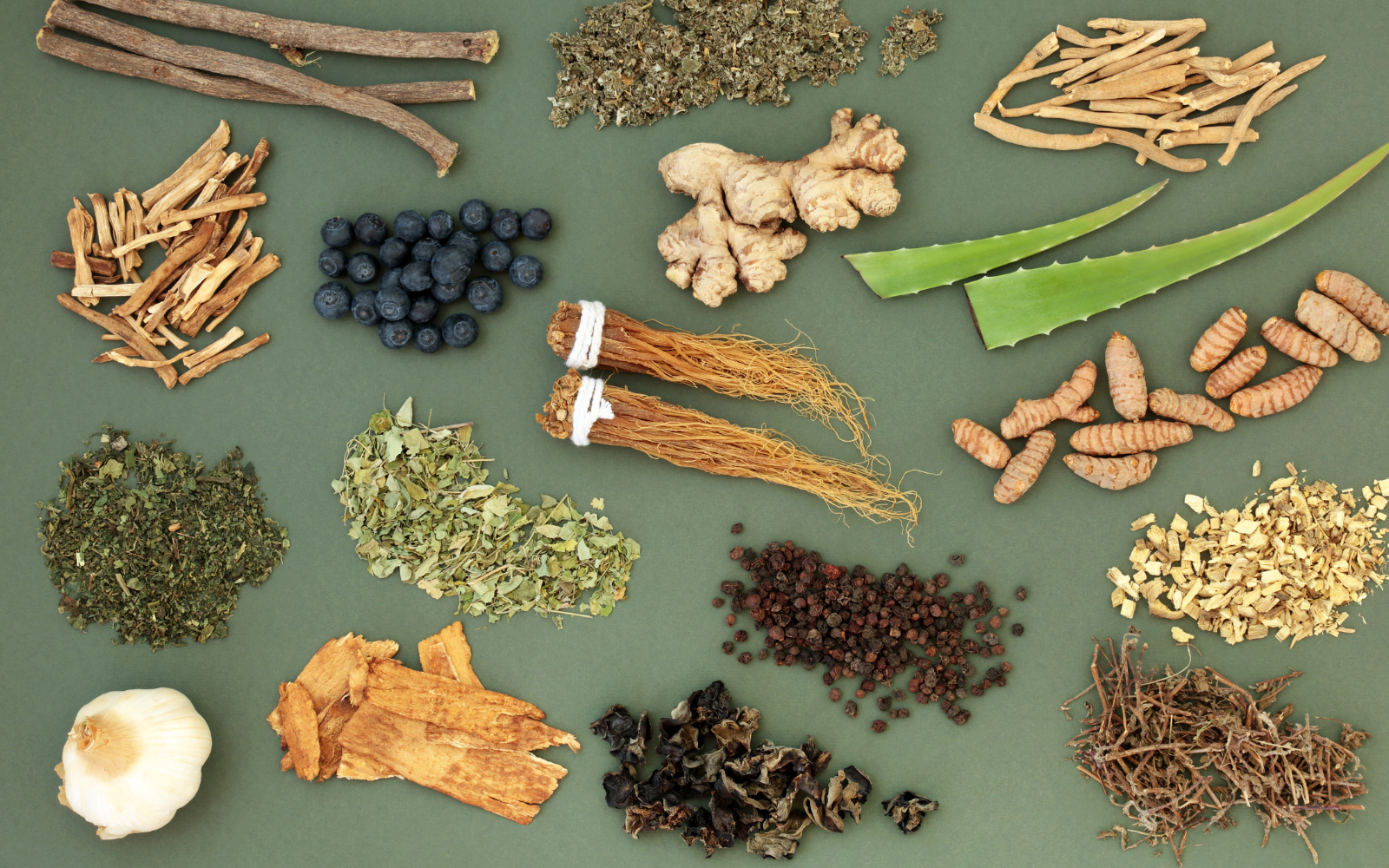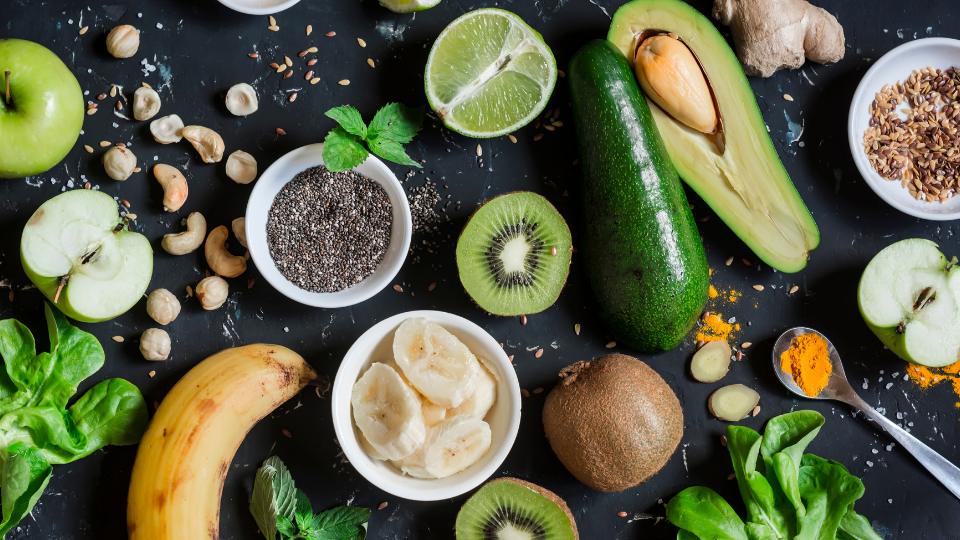We probably could all stand to eat a little better, right? After all, there's always room for some improvement.
Including more antioxidant-rich foods in your diet is a great place to start.
Antioxidants have countless health benefits that science shows can help our body in several ways. Consuming plenty of foods with high levels of antioxidants can help you age gracefully – on several levels.
The foods below are all extremely accessible, easy to incorporate in your meals, and most importantly: the best sources of antioxidants.
Why Eat Foods High in Antioxidants? 6 Health Benefits
Antioxidants boast numerous benefits – too many to fit inside this article! Here are the most well-documented advantages of consuming foods high in antioxidants.1. Antioxidants Defend the Immune System
Many people don't realize that vitamin C is, in fact, an important antioxidant. You already know that vitamin C supports the immune system, but did you know that vitamin E and vitamin A – also known as beta carotene – are also antioxidants that defend the immune system? (1)2. They Can Fight Inflammation
Foods with brilliant colors like sweet potatoes and cranberries create a nice aesthetic on the dinner table. However, their color also packs anti-inflammatory power. Carotenoids and flavonoids are antioxidants that give fruits and veggies their bright color while reducing oxidation and fighting inflammation3. They Reduce Your Cancer Risk and Defend Against Chronic Diseases
Free radicals play an important role in neutralizing bacteria before it has a chance to spread. A problem arises when our body accumulates too many free radicals from radiation and environmental toxin – which can lead to cancer. According to Stanford Health, consuming antioxidant-rich foods is important for protecting the body against free radical damage. (2) Stanford notes that beta carotene is particularly effective for warding away lung cancer, prostate cancer, stomach cancer, breast cancer, as well as head and neck cancer.4. They Fight Free Radicals and Reduce Oxidative Stress
Oxidative stress happens when your body produces more free radicals than it can neutralize. Short-term oxidative stress can stem from extremely intense exercise, burns, infections, and physical injury. Research shows, however, that long-term oxidative damage can lead to a wide range of inflammatory conditions like arthritis, lupus, high blood pressure, heart disease, stroke, and even neurological diseases like Alzheimer's, Parkinson's, and dementia. (3)5. Antioxidants Support Healthy Skin
There's no question about it. Dermatologists agree that high antioxidant levels can diminish the negative signs of aging from inflammation and redness to premature wrinkles and sagging skin. (4) Antioxidants can even protect the skin from photodamage like hyperpigmentation. Just make sure to steer clear of vitamin C in your skincare products if you plan to soak up some sun – it can cause serious burns.6. They Protect the Brain
Many people who suffer from symptoms of depression, anxiety, low energy, memory loss, and a lack of concentration don't realize the important role that diet plays in the brain and mental health. If you thought free radical damage and inflammation were bad for your skin's appearance, just imagine how they impact your brain function. Studies show that three flavonoids found in antioxidant-rich plant foods – luteolin, anthocyanins, and diosmin – are especially effective for fighting oxidative stress in the brain. (5)What About Heart Disease?
Studies deliver mixed results about the heart health benefits of antioxidants. Some research shows that antioxidants can prevent cholesterol from oxidizing (which is good). However, some studies even show that taking beta carotene or vitamin E in supplement form can accelerate heart disease progression. However, researchers at Cleveland Clinic concluded that while supplements aren't the best idea, eating a diet full of antioxidant-rich foods like kale, whole grains, and sweet potatoes is an excellent way to protect your heart against illness. (5) At the end of the day, the best way to reduce your risk of heart disease is by reducing your risk factors. Quit smoking, lower your cholesterol, and stay active.
Which Foods Are High in Antioxidants?
Supplements are great when you lack a specific vitamin and can't seem to consume enough through diet. However, your body absorbs and processes vitamins, minerals, and antioxidants best when they come from food. The foods below are all excellent sources of antioxidants. To top it off, all of these foods high in antioxidants are easy to find at your local market. We wanted to include foods that everyone can enjoy the health benefits of – not niche and trendy foods you've never heard about.1. Blueberries
Blueberries earned the first spot on this list because they're one of nature's best sources of antioxidants. Yes, the modest blueberry is a powerful superfood! Plus, they're low in calories and sugar – it's a win-win! Polyphenols in these blue beads are especially effective for supporting brain health. Wild blueberries, in particular, contain the highest levels of anthocyanin (a potent flavonoid) of any food. (6)2. Kale and Cruciferous Veggies
Red kale and cruciferous veggies like red cabbage are both good sources of antioxidants. Both veggies contain anthocyanins. In other words, they're great for cancer prevention and reducing inflammation. To top it off, these veggies also contain plenty of other nutrients like vitamins C, K, and A along with plenty of calcium and countless other nutrients.3. Cranberries and Blackberries
Remember when we talked about bright colors earlier? Dark berries like cranberries, raspberries, cherries, blackberries, and even strawberries all have incredible antioxidant capacity. Cranberries are right up there with blueberries in terms of antioxidants and phytochemicals. (7)4. Green Tea
Yes, coffee contains antioxidants – but so does green tea. Green tea provides countless health benefits from its polyphenols and other nutrients. Plus, green tea is more effective for weight loss than coffee.5. Artichokes
The average American may not reach for artichokes in the produce section, but they should. With artichokes, you get plenty of chlorogenic acid to reduce your diabetes and cancer risk. Unlike other veggies, steaming or boiling artichokes actually multiples the antioxidant capacity 15-fold.6. Pecans
Most nuts contain decent antioxidant levels thanks to their high levels of vitamin E. However, pecans are some of the best nuts for antioxidants. Studies show that people who consumed pecans had higher levels of antioxidants in their blood and lower cholesterol. (8, 9) Remember that nuts are high in fat and calories. As always, moderation is the key to good health.7. Oregano
Yes, oregano is packed with antioxidants. Plus, it's an adaptogen so it can help your body defend itself against stress. Oregano essential oil seems to have the highest concentration of carvacrol and thymol. These two antioxidants reduce free radical damage and oxidative stress. If you want to use oregano essential oil in your cooking, make sure to only buy high-quality essential oil that's fit for consumption. (10)7. Sweet Potatoes
Why wait for Thanksgiving? Sweet potatoes are packed with beta carotene and other antioxidants to protect your eyes, reduce inflammation, and combat free radical damage. Roast some purple or orange sweet potatoes in the oven with dried cranberries, pecans, kale, and turmeric for an antioxidant-packed and satisfying meal. (11)8. Dark Chocolate
We just had to include dark chocolate in this list. Yes, dark chocolate is a great source of antioxidants that help reduce blood pressure and inflammation. Look for low-fat unsweetened cocoa powder instead of reaching for a high-sugar candy bar. (12) As for red wine, while it is a good source of antioxidants, studies show that drinking any amount of alcohol is no good for health. (13) Skip the red wine and get your antioxidants from other foods that provide other health benefits. (Sorry, please don't hurt us!)9. Watermelon
Did you think that watermelon wasn't that great for you because it's mainly, well, water? Think again. If you don't like tomatoes, you may want to start eating more watermelon because it's packed with lycopene. To top it off, watermelon provides vitamins A and C, carotenoids, and keeps you hydrated.10. Chaga Mushrooms
Chaga mushrooms contain plenty of immune-boosting antioxidants. Research suggests that chaga is excellent for cancer prevention, particularly lung cancer, liver cancer, prostate cancer, and breast cancer. Not only that, but the antioxidants in chaga mushrooms can help reduce inflammation, reduce blood sugar, and lower cholesterol.6 Foods High in Antioxidants and Fiber
Did you know that 95% of the American population doesn't consume enough fiber? That's not good. Diets low in fiber directly contribute to heart disease and a wide range of other problems. The foods below are not only good sources of antioxidants but also excellent sources of fiber.- Whole Grains
- Prunes
- Black Beans
- Raspberries
- Blueberries
- Kale



